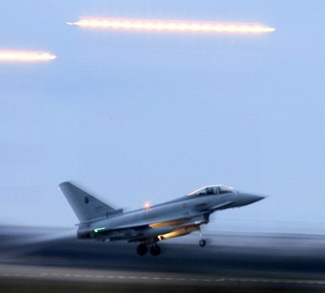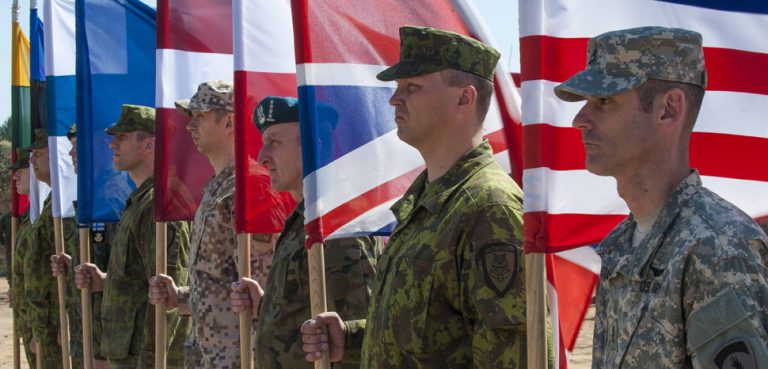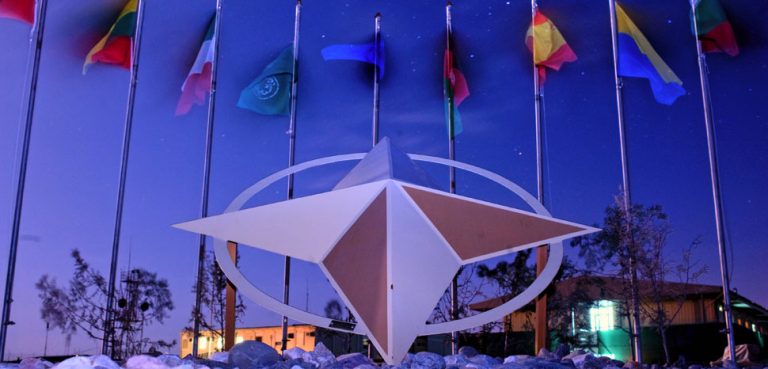One of the systematic questions of the post-Cold War international system is the role of the North Atlantic Treaty Organization (NATO) in a world where Europe and North America are no longer threatened by the USSR.
The alliance itself attempted to answer the question by rebranding itself as the world’s policeman, able to project military power for ‘humanitarian interventions’ and regime changes deemed favourable to NATO leaders. The two decades that followed demonstrated the limits of this role- from the success of Kosovo to simmering failure in Afghanistan. But can this role maintain NATO’s relevance over the next few decades, particularly as the international system continues to shift towards multipolarity?
Strategic Studies Institute (SSI) researcher Sarwar Kashmeri believes the answer to this question is no. According to a report recently released by the SSI, NATO’s best bet for the future is to re-align itself as a military alliance that is relied upon only when North American and European interests coincide on a matter of international security. This of course bucks the conventional view that the EU should turn to NATO for all things defense-related. According to Mr. Kashmeri, the EU should develop its own framework under the Common Security and Defense Policy (CSDP). He goes on to point out that the CSDP has already successfully handled 27 different military missions throughout Africa and Asia.
And this is the exact point where theory meets practice. Mr Kashmeri has a good point insofar that Europe should assume responsibility for its own defense. Additionally, from a theoretical realpolitik perspective, it seems peculiar to afford the United States a say in European defense policy even if the two entities share a common history and cultural heritage. This gives rise to the common refrain of Mr. Kashmeri and like-minded analysts: if the EU is anything like a state, it will step up and take control of its own military destiny.
And this is how practice ruins theory. The EU is not a state, and it has had enough trouble simply maintaining the theoretical feasibility of monetary union lately without having to think about the fanciful notion of further military convergence. Even though the Lisbon Treaty moved the institutional framework of the CSDP forward, the fallout of the euro financial crisis precludes any real forward momentum.
On the other hand, there are two critical factors pointing to the continued relevance of NATO in European defense. The first has to do with finances. The sovereign debt crunch that is weighing down on Western governments will inevitably impact defense spending, making the trans-Atlantic pooling of military resources inherent to NATO that much more appealing. In other words, if Europe wants to maintain its global clout in the military sphere, it will need to throw its lot in with American defense spending. One can already see defense cuts almost across the board in Europe, from the UK to France to Germany; this is a tendency that is only going to increase. Secondly, regardless of whether it’s the right role for NATO or not, the rebel victory in Libya will boost NATO’s ‘humanitarian intervention’ credentials and help to re-enforce its role as world policeman.
In the end the political will doesn’t exist to change the current situation. NATO and Europe are in it for the long haul.
The opinions, beliefs, and viewpoints expressed by the authors are theirs alone and don’t reflect any official position of Geopoliticalmonitor.com.




